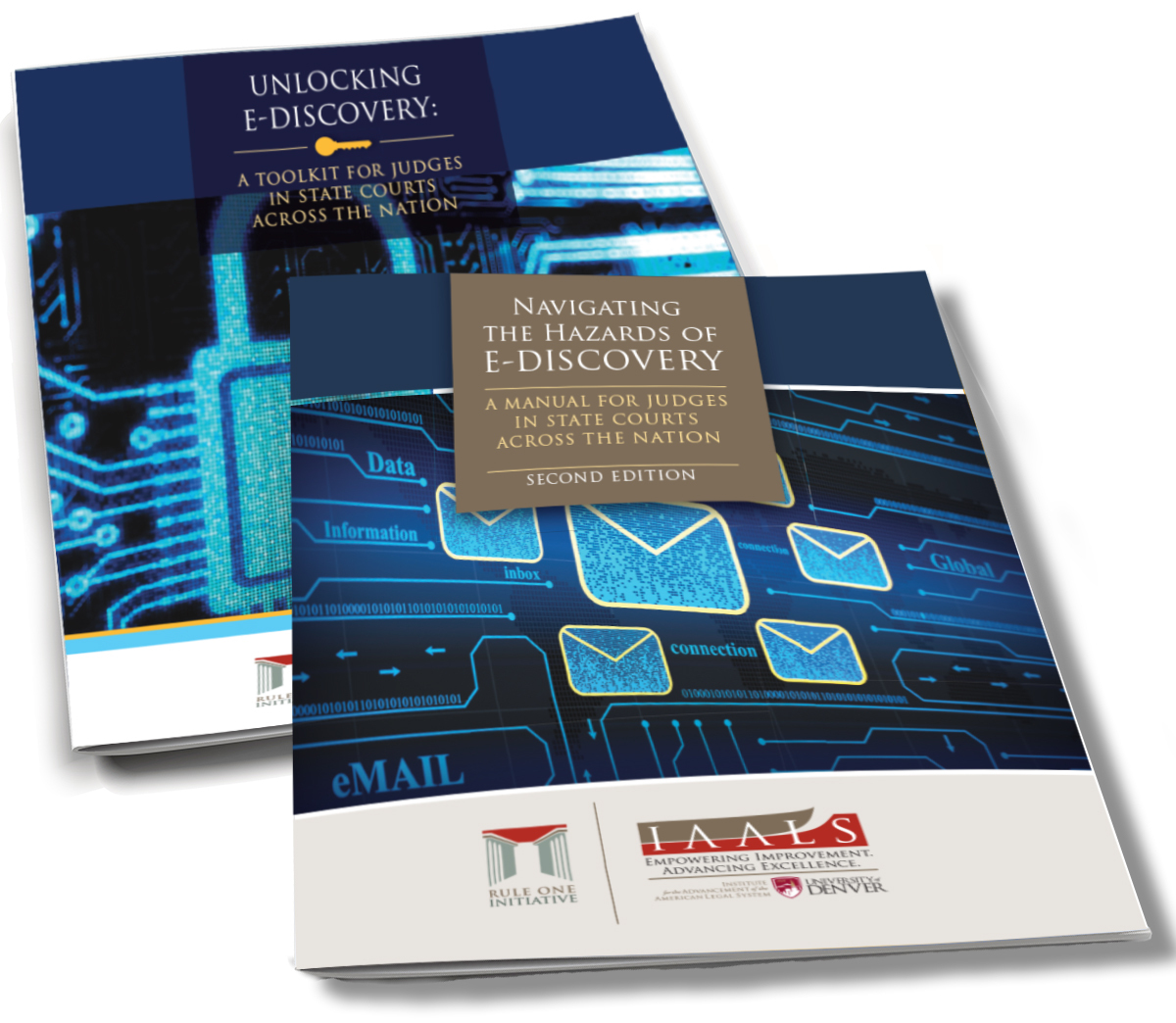IAALS has focused much of its time and effort on ways to improve the effectiveness of discovery—with the ultimate goal of ensuring an accessible system for all. IAALS is contributing to the national conversation, monitoring and supporting related efforts around the country, and leading reform.
Efforts at both the federal and state levels have focused in large part on the cost and delay related to discovery, and how the discovery process could be made more efficient and proportional. The discovery of electronically stored information (ESI) intensifies the advantages and disadvantages of our traditional discovery process, while also intensifying the need for a more efficient and proportional process. Discovery continues to play a central role in federal pilot projects and state civil justice reform efforts.
Project Team:



On December 1, 2015, significant amendments to the Federal Rules of Civil Procedure went into effect focused on cooperation, proportionality, and early active judicial case management. A new Rule 37(e) addressing sanctions related to the failure to preserve electronically stored information was also included. The amendments represent the culmination of many years of effort by the Standing Committee on Rules of Practice and Procedure, the Advisory Committee on Federal Rules of Civil Procedure, and others around the country—including IAALS—who have worked in support of these amendments designed to promote the just, speedy, and inexpensive resolution of civil cases.
Leading up to the new rules, IAALS hosted a Forum in 2013 for a small group of stakeholders from around the country for the purpose of gathering comments on the proposed federal rules amendments. Following the Forum, IAALS has compiled the comments and submitted them to the Civil Rules Advisory Committee for its consideration. IAALS also published a comprehensive report detailing the discussion at the Forum.
We recognize that it took much hard work to get this far, but to achieve the full impact of these reforms it ultimately comes down to implementation and education—of the bench and the bar.
Supplemental Material:
Allocating the Costs of Discovery: Lessons Learned at Home and Abroad
This IAALS report reviews the laws in the United States and other countries and provides examples of, and analogies to, various cost allocation models. We look to the various approaches for commonalities and lessons that can be learned, both at home and abroad. One of the key takeaways is the importance of proportionality. Click here to read and download.

States have been leaders and innovators in discovery reform efforts across the country. Many of the pilot project efforts in recent years were launched from IAALS’ collaboration with the ACTL Task Force on Discovery and Civil Justice and proposed pilot project rules. Read more about that collaboration and the state pilot projects here.
Building on these efforts, in 2013, the Conference of Chief Justices (CCJ) adopted a resolution creating a Civil Justice Improvements Committee dedicated to developing recommendations for improving our civil justice system at the state level. With CCJ approval of those recommendations in July 2016, the Chiefs have issued a nationwide call to action to transform our state courts to meet the needs of litigants in the 21st Century, including discovery reform.
Since then, there have been significant additional efforts towards discovery reform at the state level, and IAALS has monitored and contributed to these efforts. As part of the Civil Justice Initiative implementation efforts, IAALS provided expert assistance to four state court committees and tasks forces, ultimately publishing a case study to highlight these efforts and inspire other states to follow their lead. Read more about IAALS’ current work in this area in the Civil Justice Initiative project.

Discovery in litigation can be complicated and expensive, and electronic discovery is no exception. The discovery of electronically stored information (ESI) often intensifies both the advantages and disadvantages of our traditional discovery process. Today, electronically stored information impacts litigation from small cases to large, and the challenges and opportunities posed by electronic discovery cannot be ignored.
Resources for Judges and Lawyers:

Navigating the Hazards of E-Discovery: A Manual for Judges in State Courts Across the Nation
While electronic discovery continues to pose challenges for the civil justice system, and for individual courts, the judge who understands e-discovery may be uniquely positioned to guide the litigation in a way that works better for all litigants—and for the court itself. In this manual, IAALS provides a basic resource that includes the terminology, background, summary of current issues, and relevant case law. As a companion to the manual, IAALS also published a toolkit—Unlocking E-Discovery: A Toolkit for Judges in State Courts Across the Nation—which collects some of the best resources for state court judges, ranging from judicial primers to model orders to the best glossaries.
Click here to read and download the manual.
Click here to read and download the toolkit.



